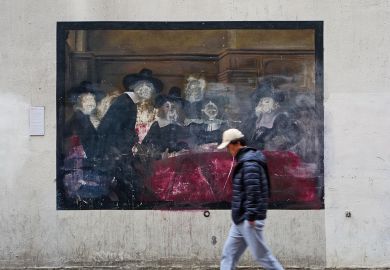Theology and religious studies are at risk of disappearing from UK universities, the British Academy has warned.
In a report published on 23 May, the academy says that there were about 6,500 fewer students on such courses in 2017-18 than there were in 2011-12, the year before tuition fees were increased in England.
The declines were driven by dwindling interest in English-domiciled students, and included a 31 per cent drop in enrolments on bachelor’s courses. In the same period, several institutions closed or merged their theology and religious studies departments.
The increase in fees to £9,000 – now £9,250 – may have “played a part in deterring prospective students and in pressuring institutions to change the courses they offer for financial reasons”, says the academy report, which adds that charities and international organisations may also have become more reluctant to subsidise students’ fees at this level.
Heythrop College, the UK’s specialist theological institution, closed its doors last year.
The report also warns that the average age of academics working in theology and religious studies was 47 – higher than most comparable disciplines – and rising.
Meanwhile, only 37 per cent of academics in the field are female, much lower than other humanities disciplines, and doctoral programmes display a similar gender imbalance.
The academy warns that the profile of teaching staff – who are also predominantly white – “could prove to be a stumbling block to recruiting students from the next generation, who increasingly value diversity”.
Roger Kain, vice-president of research and higher education policy at the British Academy, said it was a “critical time” for theology and religious studies.
“Not only are the subjects’ popularity on the wane but the problem is confounded by the profile of their teaching staff; if more ethnically and gender diverse groups do not rise through the ranks, there is a danger that these highly relevant disciplines disappear from our universities,” Professor Kain said.
Sir Diarmid MacCulloch, professor of the history of the church at the University of Oxford, said: “Religious extremism, religion-infused nationalism, and tension between religious communities are just some of the many challenges we face today. Religion is more, not less, relevant than ever before, and the study of it should reflect this.
“As an academic community, we must strive to ensure that our theology and religious studies reflect the world they seek to explain.”
Register to continue
Why register?
- Registration is free and only takes a moment
- Once registered, you can read 3 articles a month
- Sign up for our newsletter
Subscribe
Or subscribe for unlimited access to:
- Unlimited access to news, views, insights & reviews
- Digital editions
- Digital access to THE’s university and college rankings analysis
Already registered or a current subscriber? Login








